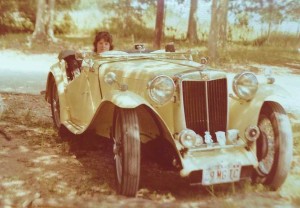 Questions about cell phone use are now standard in these kind of cases. I say motorized because people driving heavy machinery use their cell phones while driving. I’ve seen park landscapers on the phone while driving commercial sized mowers. I’ve seen people on their cell phones while driving combines in fields. Vehicular-pedestrian accidents happen when the pedestrian is on their cell too.
Questions about cell phone use are now standard in these kind of cases. I say motorized because people driving heavy machinery use their cell phones while driving. I’ve seen park landscapers on the phone while driving commercial sized mowers. I’ve seen people on their cell phones while driving combines in fields. Vehicular-pedestrian accidents happen when the pedestrian is on their cell too.
Cell phone use is so common now that we reference it in the comprehensive phrase “being on your cell phone” that includes all the functions performed on a cell phone. People can do any of these tasks with their cell phone: talk, text, read emails, respond to emails, listen to voice mail messages, view maps and other content and listen to music. Did I forget anything? If so, please let me know. I want to be ready to interpret those words.
Attorneys word their questions in a variety of ways. But as accident causes evolve, new vocabulary and phrasing appears. In order to provide the best representation of their clients, lawyers get more and more specific in their questions so the respondent doesn’t overlook a fact not referred to in the question. So, I am already seeing the trend of the all-encompassing question “Were you on your cell phone?” or “Were you using your cell phone?” being rephrased by specifying cell phone functions. Interpreters should become familiar with all the different service providers, the different brand names and styles of phones and the and setting options.
Additional vocabulary for this line of questioning includes, distraction, line of sight, paying attention and focus. All of these terms would be conjugated into the simple past, the present, imperfect indicative, and the conditional tenses. You are going to use the subjunctive for the questions about instructions, necessity, urgency suggestion, preference, possibility, regret and doubt. For examples of accidents and the process of resulting lawsuits and comprehensive training take a look at this excellent book.
The Interpreters Guide to the Vehicular Accident Lawsuit. By Josef F. Buenker
http://www.multilingualmatters.com/display.asp?k=9781853597817
One thought on “Wording Trends: The Motorized Vehicular Accident, Discovery and Litigation”
Comments are closed.
I don’t know if this is true in the city where you live, but Houston has police officers on horseback who patrol downtown. They are dressed in a traditional uniform and the horses are beautiful. They patrol in the lane of traffic closest to the curb but they are in the lane of traffic. The other day when I was driving downtown and an HPD officer mounted patrol was in front of me in my lane. I was treating him/ his horse as a slow-moving vehicle so I had given him distance between us that measured a car length and a half. Besides I was admiring his horse. Then I noticed the officer was talking on his cell phone. He or his horse briefly strayed into my lane. Nothing happened but it just goes to show you another form of distracted driving.